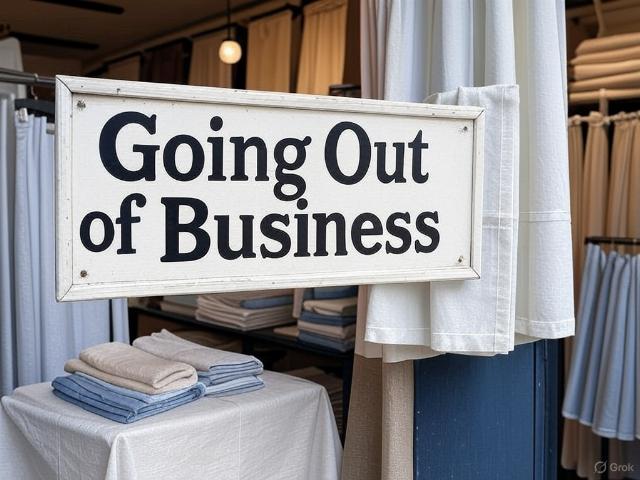The Italian Job
At the beginning of May, the European Union’s Trade Commissioner, Maroš Šefčovič, said the EU is making “certain progress” on a trade deal with the United States. A few weeks earlier, Italian Prime Minister Giorgia Meloni met with President Trump. Afterwards, she stated she was “sure” an agreement on tariffs would be reached. Trump echoed that, saying, “There will be a trade deal, 100%.”
For entrepreneur Heather Wolf, that seems promising. But she is still almost as anxious as she was before Trump suspended the tariffs for three months.
“Right now we are stuck in limbo for 90 days,” said Heather.
Heather is the owner of Kearsley, a small business based in Sonoma, CA that makes high-end linens. She has been in business for 25 years. Most of the fabrics she buys come from Italy.
The U.S. already imposes tariffs on textiles from Italy. For any finished cotton product that Heather purchases, like a pillowcase with embroidery, she must pay a 20.9% tariff.
For unfinished fabric, the tariffs are lower. They are also arbitrary.
“The tariffs on that range from 10% to 16.9% depending on the interpretation of the customs agent,” Heather said. “The tariffs are so complicated that there is no way the customs agents can be familiar with them enough to be consistent.”
Trump’s proposed tariffs would add another 20% on top of the existing tariffs.
“I’ve survived the tech bubble, the housing crash, and the pandemic,” she said. “I’m finally ready to expand, and now this.”
Trump has claimed that the tariffs will bring manufacturing back to the U.S. The irony is that Heather is already trying to do just that.
“I’ve been putting together a business plan to build a factory that would employ about 50 people to do cutting and sewing. We’d make the finished products here in the U.S.,” she said. “But I’ve made this business plan based on the costs I face with the existing tariffs. And now I get hit with a big increase in those costs. It’s frustrating.”
She has investors interested in the project, but the uncertainty created by the tariffs may make them wary.
“It’s hard for me to pitch them on the idea of manufacturing in the U.S. if my costs go up,” she said.
Trump hopes that the new duties will encourage businesses to buy American. Heather would love to buy the unfinished fabrics from American producers. The problem is there are no American companies that produce the fabric Kearsley uses.
“We cannot produce the kind of high-quality weave that is in the fabrics I use,” she said. “The weaving and finishing facilities do not exist here. And you’d also need employees with the right skills and set up supply chains.”
Heather estimates that it would take billions of dollars and close to a decade to set all of that up.
In the meantime, Kearsley and other high-end linen companies could lose a lot of business to Europe.
“Luxury yachts are big clients for high-end linens. They are also very mobile,” she said. “Yachts often get fitted for linens in Fort Lauderdale, Florida. But the new tariffs would make it more expensive to do it here than in Europe. It will be cheaper to just pull up anchor and get fitted in places like Holland or Italy.”
While Heather is no fan of Trump, she admits that he has done some good his first few months in office.
“Things like deregulation or tackling the fentanyl mess, yes, I’m all for that,” Heather said.
She just wishes he’d change his mind on tariffs.

Image from Grok.





